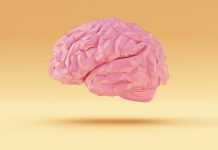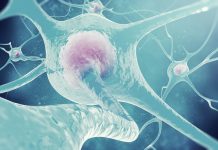
A research team from the Universitat Autònoma de Barcelona (UAB) has taken a novel approach to Alzheimer’s disease by investigating the livers of mice models of the disease.
They described significant alterations in the liver’s structure, cells, and function, providing evidence that the liver-brain axis could play a crucial role in the psychological symptoms of Alzheimer’s disease.
Traditionally, Alzheimer’s research has solely focused on the brain changes that occur in individuals with this type of dementia.
However, this study explores the theory that oxidative stress and inflammation, both heightened by aging, could be key contributors to the development of the disease.
As the liver is the organ primarily responsible for regulating metabolism and supporting the immune system, it could play a significant role in the disease’s development and prognosis.
Findings of the Study
The UAB research team found numerous indications of liver dysfunction in the Alzheimer’s mice models, including hepatomegaly (enlarged liver), histopathological amyloidosis (abnormal protein deposits in tissues), oxidative stress, and cellular inflammation.
Further, the team discovered a significant connection between liver changes and behavioral alterations, such as increased neophobia (fear of the new), and dysfunctions in the hypothalamic-pituitary-adrenal (HPA) axis, which manages responses to stress.
These findings, therefore, suggest the existence of changes in the liver-brain axis, which has been scarcely studied until now.
Implications of the Findings
The involvement of the liver in clearing the beta-amyloid protein, which accumulates in the brain of Alzheimer’s patients, is well-known.
There’s also a possible inflammatory communication between the liver and brain through pro-inflammatory factors.
As people age, the blood-brain barrier becomes more permeable, allowing for closer contact between peripheral organs and the brain.
In these circumstances, the liver, due to its detoxification role, may become overwhelmed, increasing inflammation and oxidative stress.
This in turn could exacerbate neuroinflammation and oxidative stress in the nervous system.
Furthermore, the research team found that factors like sex (male) and isolation (especially when unwanted) influence the progression of hepatomegaly, oxidative stress, and inflammation, subsequently worsening the disease’s prognosis.
Conclusion
This study opens new paths in understanding the systemic aspects of Alzheimer’s disease, highlighting potential targets for further research.
These include the influence of sex/gender and the impact of loneliness.
The research underscores the need to broaden the scope of Alzheimer’s disease research beyond the brain, considering the role of peripheral organs and systemic factors.
If you care about liver health, please read studies about Vitamin D and nonalcoholic fatty liver disease, and Anti-inflammatory diet could help prevent fatty liver disease.
If you care about Alzheimer’s, please read studies about Vitamin D deficiency linked to Alzheimer’s, vascular dementia, and Oral cannabis extract may help reduce Alzheimer’s symptoms.
The study was published in Cells.
Copyright © 2023 Knowridge Science Report. All rights reserved.



